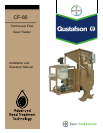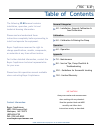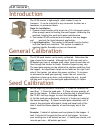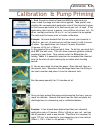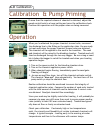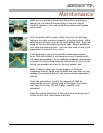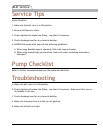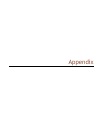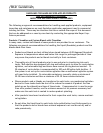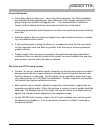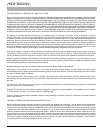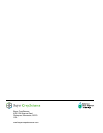
Guidelines 11.0
General Equipment
• Check lters daily at least once. Clean rinse off as necessary. The lter assemblies
are intended to keep agglomerates, plant debris and other foreign substances from
going through the system and plugging lines. If an accumulation of material is
found, the lter basket should be removed and rinsed free of the debris.
• Clean pump and product lines frequently to avoid an accumulation of product buildup
over time.
• Avoid low spots or bows on hoses and supply lines where products may have a tenden-
cy to accumulate and or settle.
• If the treating system is being shut down for a weekend or more, ll the work tanks
to their maximum level and ush any product from the lines to avoid any potential
product settling.
• Product supply lines running from a pump to the application equipment should be
installed so they run laterally and up to the treater to ensure constant ow and com-
plete product removal when the lines are drained.
Electronic and CBT Treating Systems
• Conduct ‘on-the-go’ calibration checks frequently by checking the amount of product
being pumped from the closed calibration cylinder versus the product delivery rates
that the computer is indicating. GLCPS systems rely on peristaltic pump hose integ-
rity; wear and tear on it will affect the calibration. Periodic inspection and recalibra-
tion should help improve calibration accuracy.
• Make routine ‘loss-in-weight’ calibration inspections when product supply tanks are
mounted on weighing scales. While the machine is running, a loss in weight should be
observed. The elapsed time for this weight loss can be used to cross check accuracy
against the rate per minute displayed on the computer screen.
• On the CBT-200 batch treaters, inspect the 20-l batch weighing tank used to receive
and dispense any products. If an accumulation of product is visible it should be re-
moved and cleaned.



